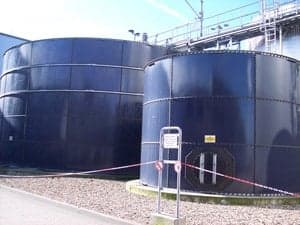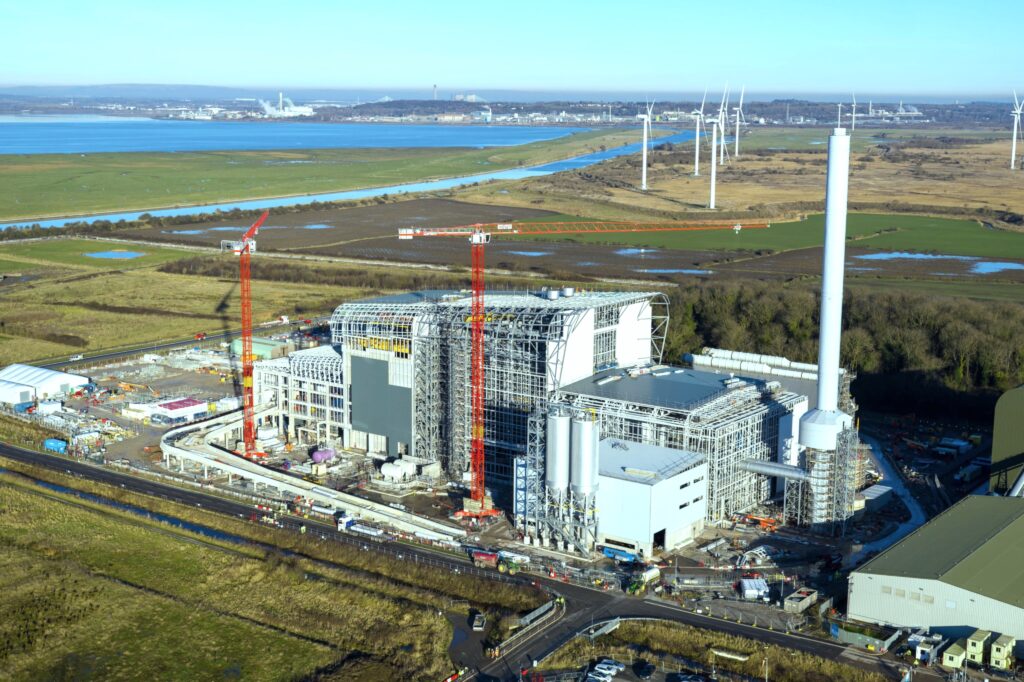The Department of Energy and Climate Change (DECC) today (July 25) published new bandings for Renewables Obligations Certificates (ROCs) under the Renewables Obligation (see letsrecycle.com story). This included plans to keep the subsidy for anerobic digestion plants at 2 ROCs per MWh in 2013/14 and 2014/15, falling to 1.8 in 2016/17, in line with expectations.

However, in a surprise move, DECC also proposed ending ROC support for anaerobic digestion plants under five megawatts from April 1 2013, subject to consultation.
The review document states: The government will shortly consult on proposals to exclude from the RO new AD projects of 5 MW and below that are currently eligible for support under either the RO or FITs scheme. Installations above 50 kW and up to 5 MW that are accredited under the RO before 1 April 2013 would be allowed to remain in the RO.
Disaster
The decision has come as a shock to the AD industry as it was not mentioned in the original consultation document (see letsrecycle.com story).
And, David Collins, head of biogas at the Renewable Energy Association (REA), said it raised questions over the coalition governments commitment to the technology.
He said: If sub 5MW AD were to be removed from the RO it would be a disaster for the AD industry. Two ROCs is sufficient support for anaerobic digestion but very few projects are or will be above the proposed 5MW threshold.
On top of the new tough capacity restrictions for AD under the FiTs we now face the prospect of the end of support under the RO this totally contradicts Government aspirations for AD in Defras AD Strategy and ensures that we will fail to achieve the targets for biogas under our National Renewable Energy Action Plan.
Excluded
This view was supported by the Anaerobic Digestion and Biogas Association (ADBA) which accused the government of undermining investor confidence. In addition it said that the overwhelming majority of AD plants are under 5MW which means the industry is effectively being excluded from the ROCs scheme.
Charlotte Morton, chief executive of ADBA, said: Degression was to be expected but the new proposal to prevent the vast majority of new plants from claiming ROCs from April 2013 will cause a shock in the AD and investment communities. Making such a change with little more than six months notice will hit projects already in development, as well as the business plans of companies looking to develop AD plants in the next few years.
EfW
Despite criticism over AD, other measures outlined in the banding review were seen to be positive for the waste sector.
“If sub 5MW AD were to be removed from the RO it would be a disaster for the AD industry. Two ROCs is sufficient support for anaerobic digestion but very few projects are or will be above the proposed 5MW threshold.”
– David Collins, REA
The Environmental Services Association, the trade association for the waste sector, welcomed the governments move to maintain the ROC level for energy-from-waste with combined heat and power at one ROC per MWh, as opposed to cutting it in half as had been proposed in the consultation.
ESAs director of policy Matthew Farrow said that the announcement offered good news for the EfW sector.
He said: It must be remembered that EfW projects are often complex with many different risks attached to them, including planning issues, or finding suitable off-take customers for heat or AD digestate. Government and the industry need to continue to work together if the full potential of EfW is to be realised.
The announcement was also welcomed by Energy from Waste UK, which represents businesses and trade associations looking to promote energy from waste including the British Plastics Federation, Combined Heat and Power Association and the REA.
In a statement it said: EfW UK welcomes todays announcement, which is a clear signal from Government that it supports the waste technologies that are helping to deliver its renewable energy targets in an effective and cost efficient manner.
With todays data on the UK economy showing a significant contraction in the construction industry, it is important now more than ever that we support the development of modern, efficient waste management facilities that not only help the UK deliver its renewable energy targets but also generate a significant number of local jobs.
Gasification
The review was also welcomed by companies developing gasification and pyrolysis technology. The governments consultation had proposed to halve the subsidiary for these technologies from one per MWh to 0.5 per MWh. However, it has now decided to increase the subsidy to two ROCs per MWh in 2013/14, reducing to 1.9 in 2015/16 and then 1.8 in 2016/17. This level of ROCs will also apply to advanced pyrolysis and gasification technology which currently receives two ROCs per MWh.
The decision was welcomed by organic waste specialist New Earth Solutions, which is in the process of building its first commercial-scale plant in Avonmouth, near Bristol.
Related Links
Chris Cox, managing director of New Earth, said: New Earth has been working hard to raise awareness of the benefits of advanced thermal technology to both the waste management and energy recovery sectors and we are delighted with the Governments commitment to on-going fiscal support.
It will provide a strong platform for developers and funders of schemes that will contribute to more sustainable waste management and meeting the UKs renewable energy obligations. Advanced thermal can make a significant impact on the renewable energy sector with modular and scaleable plants.
The move was also welcomed by gasification specialist Energos which said the move was a victory for common sense.







Subscribe for free